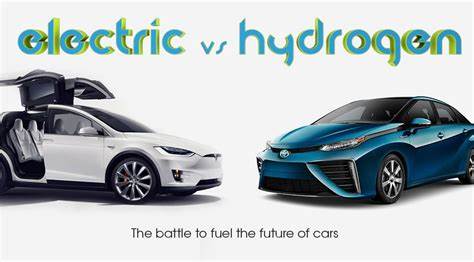
Hydrogen vs. Electricity: A Comprehensive Comparison of Eco Vehicles
Introduction
In today’s rapidly evolving world, the debate between hydrogen fuel cell vehicles and electric vehicles has gained significant attention. As the demand for eco-friendly transportation options increases, it becomes crucial to understand the advantages and disadvantages of both technologies. This article aims to provide an in-depth analysis of the topic, shedding light on the historical background, key concepts, main discussion points, case studies, current trends, challenges, controversies, future outlook, and the overall significance of the Hydrogen vs. Electricity debate in the realm of eco vehicles.
Historical Background
The development of hydrogen fuel cell technology dates back to the early 19th century, and significant advancements were made during the 20th century, leading to the commercialization of hydrogen fuel cell vehicles. On the other hand, electric vehicles have a longer history, with the first electric car being developed in the 19th century. Over the years, electric vehicles have evolved, becoming more efficient and practical for everyday transportation.
Key Concepts and Definitions
Hydrogen fuel cell technology involves the conversion of hydrogen into electricity, which powers the vehicle’s motors. This technology offers a sustainable and clean alternative to conventional internal combustion engines. Electric vehicles, on the other hand, rely on electricity stored in batteries to power their motors. They come in various types, including battery electric vehicles (BEVs) and plug-in hybrid electric vehicles (PHEVs).
Main Discussion Points
Advantages and disadvantages of hydrogen fuel cell vehicles
Hydrogen fuel cell vehicles offer several benefits, such as zero-emission operation, longer driving range, and quick refueling times. However, challenges remain, including the high cost of production, limited refueling infrastructure, and concerns regarding hydrogen production and transportation safety.
Advantages and disadvantages of electric vehicles
Electric vehicles provide numerous advantages, including zero-emission operation, lower operating costs, and the availability of charging infrastructure. Nevertheless, limitations such as limited range, long charging times, and concerns over the environmental impact of battery production and disposal persist.
Comparison of hydrogen fuel cell vehicles and electric vehicles
When comparing hydrogen fuel cell vehicles and electric vehicles, several factors come into play. The environmental impact and emissions of both technologies differ, with hydrogen fuel cell vehicles producing water vapor as the only emission. Infrastructure requirements also vary, with electric vehicles requiring a widespread charging network compared to hydrogen refueling stations. Refueling/recharging times and range differ as well, with hydrogen fuel cell vehicles offering quicker refueling times and longer driving ranges. Additionally, hybrid technologies that combine hydrogen and electricity show potential for the future.
Case Studies or Examples
Examining case studies can provide valuable insights into the real-world implementation and challenges faced by hydrogen fuel cell vehicles and electric vehicles. One case study highlights the success and challenges of using hydrogen fuel cell vehicles in California, while another focuses on the adoption and growth of electric vehicles in Norway.
Current Trends or Developments
Hydrogen fuel cell technology has witnessed recent advancements, including improvements in efficiency, durability, and cost reduction. Electric vehicle infrastructure development has also progressed, with increased investment in charging stations and battery technology.
Challenges or Controversies
Addressing concerns about the production and transportation of hydrogen is crucial for wider adoption of hydrogen fuel cell vehicles. Similarly, addressing concerns about the environmental impact of battery production and disposal is essential for the sustainable growth of electric vehicles.
Future Outlook
The future of eco vehicles presents exciting possibilities. Speculations on the growth and adoption of hydrogen fuel cell vehicles consider advancements in hydrogen production and infrastructure. Furthermore, innovations in electric vehicle technology, such as improved battery technology and faster charging solutions, hold promise for the future.
Conclusion
In conclusion, the Hydrogen vs. Electricity debate is of utmost significance for the future of eco vehicles. Understanding the historical background, key concepts, advantages, disadvantages, comparisons, case studies, current trends, challenges, controversies, and future outlook allows us to make informed decisions towards a sustainable transportation future.